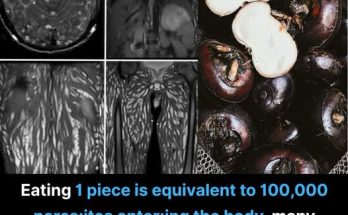Turning 70 is more than just another birthday — it’s a meaningful milestone that often brings with it a quiet question: How many good years do I have left?
You might wonder if the best is behind you, or if there’s still room for new adventures, connection, and vitality. And while none of us can predict the future, science and experience have shown us that certain signs in your 70s can reveal a lot about your overall health — and how long you’re likely to enjoy life.
The good news? You have more control than you may think.
Here are seven powerful indicators that suggest you’re aging well — and practical ways to support your health, energy, and longevity through your golden years.
1. You Stay Socially Connected
If you regularly pick up the phone to chat with a friend, attend church or community events, or enjoy weekly dinners with family — you’re doing your future self a huge favor.
Why it matters:
Strong social bonds are among the most reliable predictors of long life. In fact, seniors with active social lives are less likely to experience depression, cognitive decline, or chronic illness. Loneliness, on the other hand, is as harmful as smoking 15 cigarettes a day, according to researchers.
What you can do:
- Join a local club or senior center
- Set regular coffee dates or video calls with loved ones
- Consider volunteering — it gives back and keeps you engaged
Aging doesn’t mean shrinking your world — it’s an opportunity to deepen your connections and make new ones.
2. You Move with Ease and Confidence
Can you walk unassisted across a room? Climb stairs? Rise from a chair without using your hands?
These movements might seem simple, but they’re powerful indicators of physical resilience and overall longevity.
Why it matters:
Mobility is closely tied to independence and safety. The ability to move confidently reduces the risk of falls, improves heart health, and keeps joints and muscles strong. People who remain physically active into their 70s and beyond are far more likely to maintain a high quality of life.
What you can do:
- Walk at least 30 minutes a day
- Try chair yoga, tai chi, or gentle stretching
- Use resistance bands or light weights to build strength
It’s never too late to move your body — even small steps can make a big difference.
3. You Eat a Balanced, Nourishing Diet
A healthy appetite and good eating habits are often overlooked signs of vitality — but they matter deeply, especially after 70.
Why it matters:
A well-rounded diet packed with fruits, vegetables, lean protein, healthy fats, and whole grains fuels your energy, protects your heart, supports brain function, and helps manage weight and blood sugar. On the other hand, poor nutrition increases your risk of fatigue, weakness, and illness.
What you can do:
- Start your day with a protein-rich breakfast (like eggs or Greek yogurt)
- Include colorful vegetables in every meal
- Stay hydrated — thirst signals may weaken with age
Nutrition doesn’t need to be complicated — just consistent.
4. You Maintain a Healthy, Stable Weight
There’s no perfect number on the scale, but how your body carries its weight — and whether it’s been stable over time — can tell a lot about your health.
Why it matters:
Being significantly overweight increases your risk for diabetes, heart disease, and joint problems. But being underweight, especially in older adults, can signal frailty, nutrient deficiencies, or underlying illness.
What you can do:
- Speak to your doctor about your ideal weight range
- Focus on muscle preservation, not just the number on the scale
- Avoid extreme diets; instead, aim for steady habits that support balance
Think strength over size — and aim for consistency over perfection.
5. Your Mind Feels Sharp and Engaged
Can you recall names easily? Solve problems? Follow conversations without confusion?
Mental clarity is one of the most promising signs of healthy aging.
Why it matters:
Memory loss isn’t inevitable with age. In fact, keeping your brain active and challenged helps preserve cognitive function and may even lower your risk of dementia. Lifelong learners tend to live longer — and better.
What you can do:
- Read regularly — books, newspapers, or audiobooks
- Try crosswords, puzzles, or word games
- Learn something new: a language, instrument, or hobby
Your brain is like a muscle — the more you use it, the stronger it stays.
6. You Sleep Soundly and Wake Rested
If you’re getting 7–8 hours of quality sleep each night and waking up refreshed, consider that a sign your body is functioning well.
Why it matters:
Sleep is when your body repairs itself. It’s vital for immune health, memory consolidation, blood pressure regulation, and emotional stability. Older adults who consistently sleep poorly are at higher risk for cognitive decline, heart disease, and depression.
What you can do:
- Keep a consistent sleep schedule — even on weekends
- Avoid screens and bright lights before bed
- Create a relaxing wind-down routine with reading, soft music, or herbal tea
Sleep isn’t a luxury — it’s one of your body’s best natural healers.
7. You Keep Up with Routine Checkups
You wouldn’t skip a car inspection for years, and your body deserves the same attention.
Why it matters:
Regular screenings, bloodwork, and doctor visits catch problems early — often before symptoms appear. Preventive care helps manage chronic conditions and allows for timely interventions that protect your long-term health.
What you can do:
- Stay on schedule with annual physicals, eye exams, and dental visits
- Keep track of your medications and ask your doctor if adjustments are needed
- Don’t wait for something to feel “wrong” — proactive care saves lives
Prevention truly is the best medicine, especially after 70.
Your 70s Can Be the Start of Something Wonderful
Reaching 70 doesn’t mean winding down — it means shifting into a different kind of strength.
A strength rooted in wisdom, experience, and the conscious choices you make each day.
Maybe you’ve had some health scares. Maybe you’re managing a few chronic conditions. That doesn’t mean you’ve run out of time — it means you’re still here, and you still have the power to shape the years ahead.
The signs above aren’t a checklist for perfection. They’re a guide — reminders that aging well comes from connection, movement, nourishment, and self-awareness.
No matter what your past looks like, you can still invest in your future.
Because healthy aging isn’t about counting years — it’s about making the ones ahead full of life.



